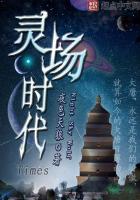The problem being, among a number of other things thought as successive, but simultaneously thought, to determine which is first and which last, he says: "After each distinct representation, a b c d , there may intervene the representation of that movement of attention of which we are aware in passing from one object to another.In our present reminiscence we have, it must be allowed, little direct proof of this intervention;
though there is, I think, indirect evidence of it in the tendency of the flow of ideas to follow the order in which the presentations were at first attended to.With the movement itself when the direction of attention changes, we are familiar enough, though the residua of such movements are not ordinarily conspicuous.These residua, then, are our temporal signs....But temporal signs alone will not furnish all the pictorial exactness of the time-perspective.
These give us only fixed series; but the law of obliviscence, by insuring a progressive variation in intensity as we pass from one member of the series to the other, yields the effect which we call time-distance.By themselves such variations in intensity would leave us liable to confound more vivid representations in the distance with fainter ones nearer the present, but from this mistake the temporal signs save us; where the memory-continuum is imperfect such mistakes continually occur.On the other hand, where these variations are slight and imperceptible, though the memory-continuum preserves the order of events intact, we have still no such distinct appreciation of comparative distance in time as we have nearer to the present, where these perceptive effects are considerable....Locke speaks of our ideas succeeding each other 'at certain distances not much unlike the images in the inside of a lantern turned round by the heat of a candle,' and 'guesses'
that 'this appearance of theirs in train varies not very much in a waking man.' Now what is this 'distance' that separates a from b, b from c, and so on ; and what means have we of knowing that it is tolerably constant in waking life? It is, probably, that, the residuum of which I have called a temporal sign; or, in other words, it is the movement of attention from a to b." Nevertheless, Mr.Ward does not call our feeling of this movement of attention the original of our feeling of time, or its brain-process the brain-process which directly causes us to perceive time.He says, a moment later, that " though the fixation of attention does of course really occupy rime, it is probably not in the first instance perceived as time -- i.e.as continuous 'protensity,' to use a term of Hamilton's -- but as intensity.Thus, if this supposition be true, there is an element in our concrete time-perceptions which has no place in our abstract conception of Time.In Time physically conceived there is no trace of intensity; in time psychically experienced, duration is primarily an intensive magnitude, and so far literally a perception."
Its 'original' is, then, if I understand Mr.Ward, something like a feeling which accompanies, as pleasure and pain may accompany, the movements of attention.Its brain-process must, it would seem, be assimilated in general type to the brain-processes of pleasure and pain.Such would seem more or less consciously to be Mr.Ward's own view, for he says: "Everybody knows what it is to be distracted by a rapid succession of varied impressions, and equally what it is to be wearied by the slow and monotonous recurrence of the same impressions.Now these 'feelings' of distraction and tedium owe their characteristic qualities to movements of attention.In the first, attention is kept incessantly on the move; before it is accommodated to a , it is disturbed by the suddenness, intensity, and novelty of b ;
in the second, it is kept all but stationary by the repeated presentation of the same impression.Such excess and defect of surprises make one realize a fact which in ordinary life is so obscure as to escape notice.But recent experiments have set this fact in a more striking light, and made clear what Locke had dimly before his mind in talking of a certain distance between the presentations of a waking man.In estimating very short periods of time of a second or less, indicated, say, by the beats of a metronome, it is found that there is a certain period for which the mean of a number of estimates is correct, while shorter periods are on the whole over-, and longer periods under-estimated.I take this to be evidence of the time occupied in accommodating or fixing attention." Alluding to the fact that a series of experiences, a b c d e , may seem short in retrospect, which seemed everlasting in passing, he says: "What tells in retrospect is the series a b c d e , etc.; what tells in the present is the intervening t 1 t 2 t 3 , etc., or rather the original accommodation of which these temporal signs are the residuum." And he concludes thus: "We seem to have proof that our perception of duration rests ultimately upon quasi-motor objects of varying intensity, the duration of which we do not directly experience as duration at all."
Wundt also thinks that the interval of about three-fourths of a second, which is estimated with the minimum of error, points to a connection between the time-feeling and the succession of distinctly 'apperceived' objects before the mind.The 'association-time' is also equal to about three fourths of a second.This association-time he regards as a sort of internal standard of duration to which we involuntarily assimilate all intervals which we try to reproduce, bringing shorter ones up to it and longer ones down.
"Singularly enough," he adds (Physiol.Psych., II.













